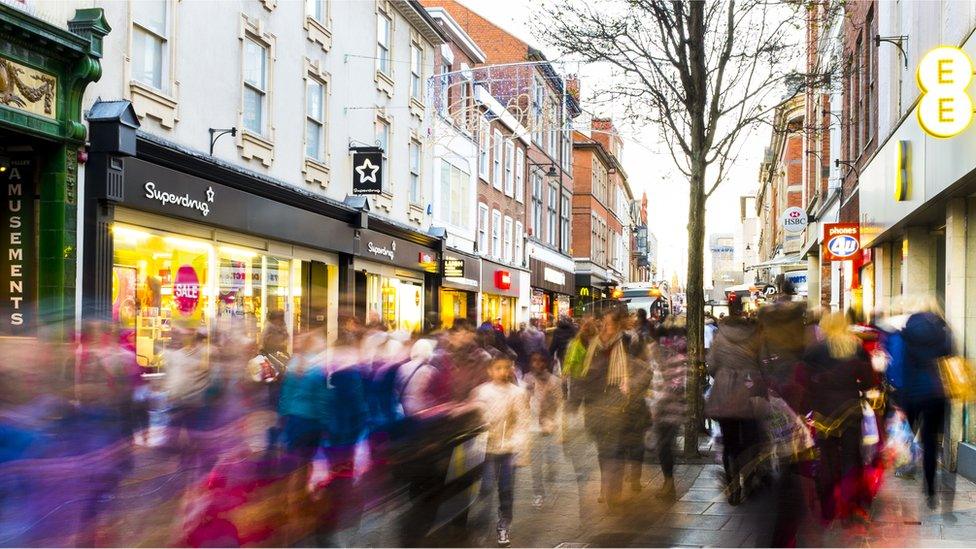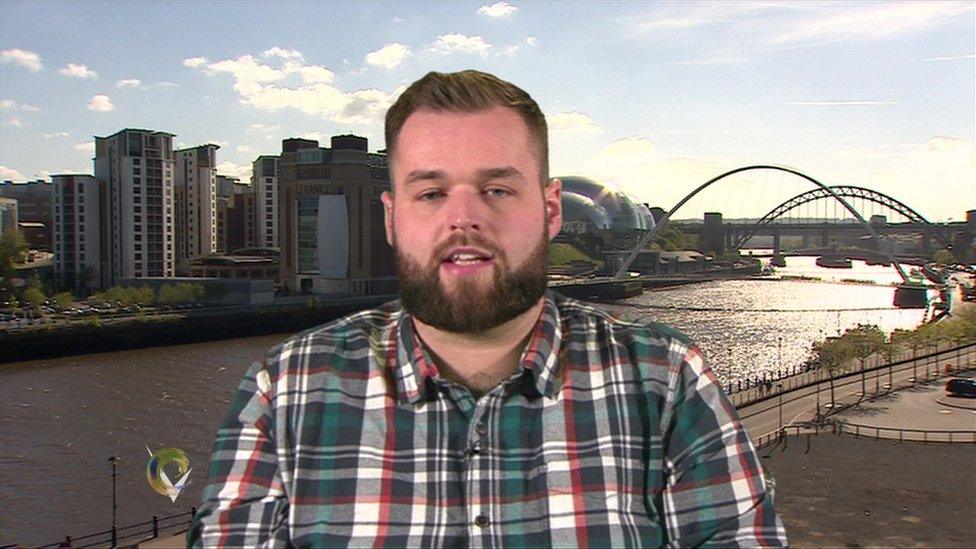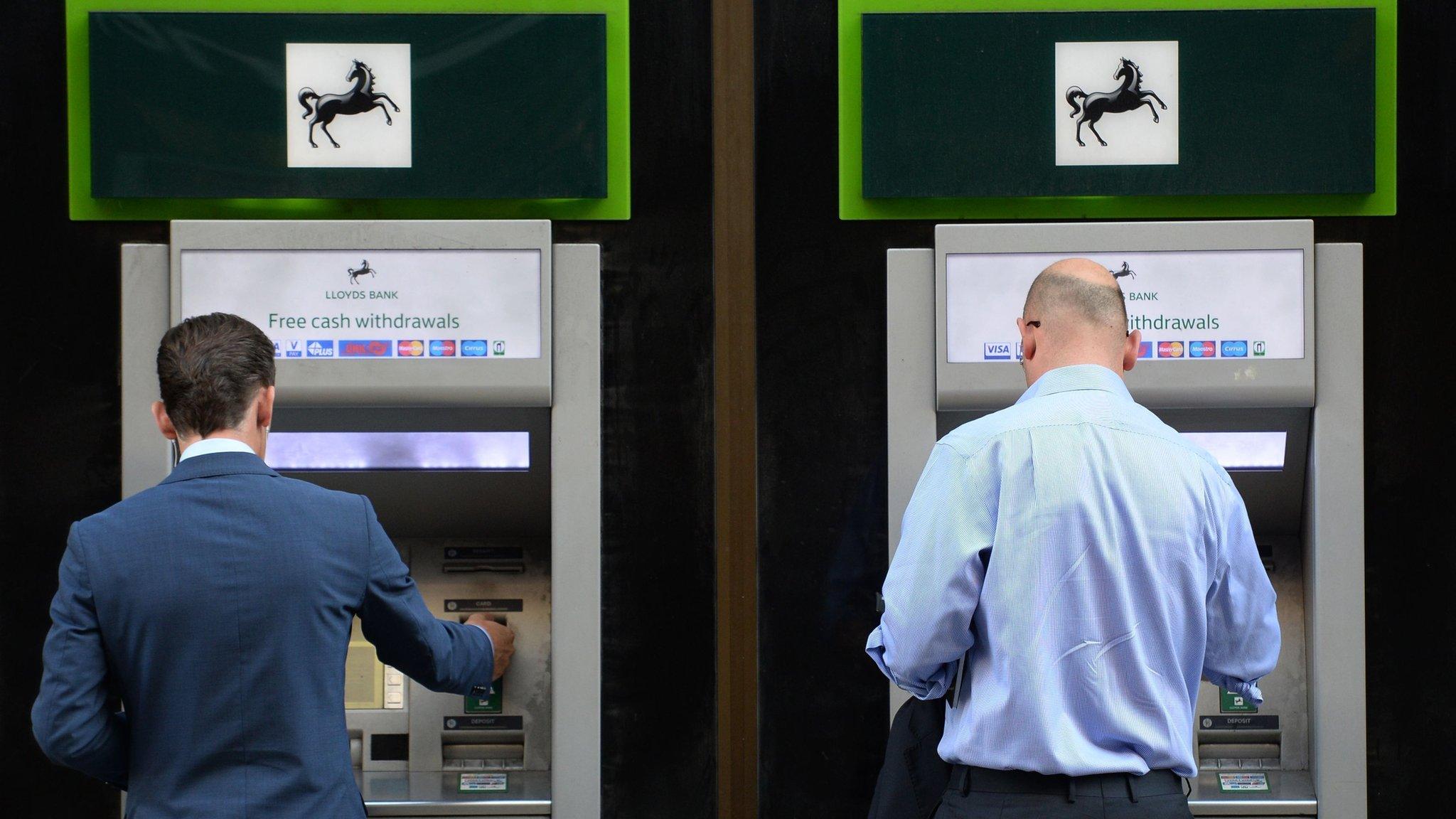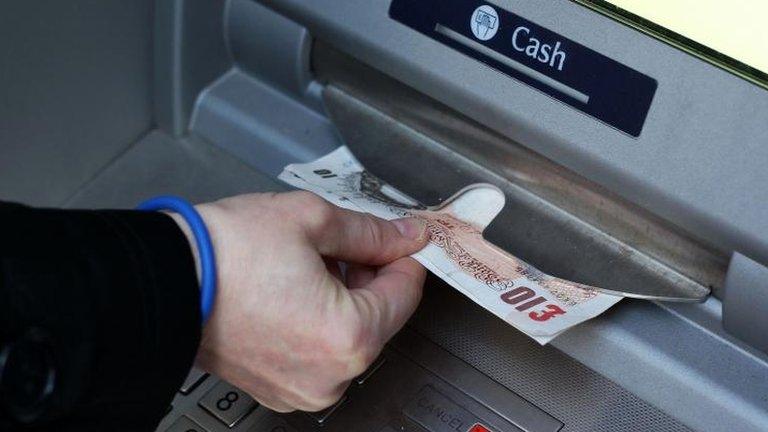Banks should end unplanned overdraft charges, charity says
- Published

Banks should end all unauthorised overdraft charges because they are trapping people in persistent debt, the financial charity StepChange has said.
The organisation also wants banks and regulators to do more to identify people caught up in a "vicious cycle of borrowing".
Even where customers have admitted they are in trouble, it said banks often fail to help.
However, High Street banks said they were committed to lending responsibly.
In 2016 some 2.1 million people used their overdraft every month of the year, according to industry figures.
The UK's biggest bank, Lloyds, has already abolished charges for unplanned overdrafts.
Customers of Barclays cannot get an unauthorised overdraft, but they can apply for "emergency lending".
However others, including Santander, Royal Bank of Scotland (RBS) and NatWest still offer unplanned borrowing.
Santander charges up to £95 for each month a customer is overdrawn. RBS, NatWest and HSBC have a cap of £80 a month.
As part of its study into high cost credit the Financial Conduct Authority (FCA) said it was considering a ban on charges for unplanned overdrafts - but it is not due to report until 2018.
'Action needed'
Half of StepChange's clients have overdrafts and each owe an average of £1,722.
They often use their overdrafts to pay off household bills, so end up in a cycle of debt.

Callum Bell told the BBC he is spending more time worrying about debt
Callum Bell, a mental health nurse from north-eastern England, is reliant on borrowing to boost his income.
"Every month I'm dipping a little bit more into my overdraft," he told the BBC. "Over Christmas it's even more difficult.
"I spend more time worrying about my finances and I'm not alone in this. It's a problem across the country."
Banks also insist on giving customers large overdrafts, even though they may not be able to afford the repayments, the charity claims.
One of its clients was offered an overdraft of £2,250, even though they were working part-time and on benefits.
It says such banks are guilty of "unaffordable lending".

Analysis: Brian Milligan, BBC personal finance reporter
While it is still well nigh impossible to understand the charging structure for overdrafts, things are better than they used to be.
Back in 2014, for example, Oliver Foster-Burnell, from Taunton, won a case against Lloyds TSB, who charged him £743 after he went into his overdraft by just £2.67.
Subsequently banks began capping overdraft fees. Indeed, since September 2017 all banks have been obliged to publish a maximum monthly charge.
But while the average borrower benefits from a cap, some individuals end up paying more.

"Lenders and regulators must take action to need to ensure that overdraft lending is affordable, that borrowers in financial difficulty get the right support and that we break the cycle of persistent overdraft debt," said Peter Tatton, head of policy at StepChange.
"Fundamental reform is needed."
However the banking industry said it was already doing its best to help customers in financial difficulty.
"Overdrafts can help customers smooth their household spending, but if circumstances change or they are struggling with their finances, they should contact their lender straightaway," said a spokesperson for UK Finance.
"Lenders will support customers and allow them a period of time to seek impartial and independent debt advice."

- Published16 October 2017

- Published12 July 2017

- Published31 July 2017
